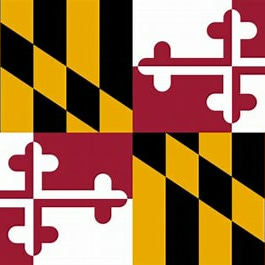Post # 91 Maryland Rural Counties on life support because of Trump’s Big Beautiful Bill
Red counties in Maryland will suffer the most and they voted for Trump.
About a little over a month ago I probably would not even care about rural hospitals. But on a vacation out west I got treated in one. I was at Hoover Dam it was 95° I had some bad orange juice in the morning before you know it, I passed out. My head hit the concrete, and I was out like a light for a little bit. My wife and I started googling urgent care facilities. I found one on the way the Las Vegas, in Henderson. I walked inside, they looked at me, asked me some questions and then told me I needed to go to the rural hospital that was 5 minutes away.
My wife and I truthfully did not know what to expect. Our one fear was a long wait. The care was outstanding. Besides getting 9 stitches, they also did a scan to make sure I did not have any hidden head injuries. The people there were real nice. If you drove by the building, you wouldn't have even known it was a rural hospital. The purpose of the trip was to visit some of the national parks in Utah and ironically the scar I got above my eyebrow looks like one of the Arches!
Analysts have found that key Medicaid provisions in the One Big Beautiful Bill Act (HR 1) would result in a $50.4 billion reduction in federal Medicaid spending on rural hospitals over 10 years and 1.8 million individuals in rural communities losing their Medicaid coverage by 2034. The analysis also details the 10-year rural hospital financial impact and coverage loss by state.
Medicaid, covers over 16 million people in rural communities in the United States and helps provide health care and sustain rural hospitals. According to the American Hospital Association (AHA) the 10-Year Federal Rural Hospital Impact Through 2034 would come to $267 million in Maryland.
Closing rural hospitals closes off healthcare for thousands of people. We talk about red and blue states, but in Maryland we also have red and blue counties, and the red counties will suffer the most. Closing these hospitals could also delay healthcare outcomes for people who face emergency situations like the one I faced in Nevada. If I had faced a more serious injury (IE. Natasha Richardson) and had to drive to Las Vegas, an extra hour drive and more crowded hospital, things could have been worse.
Think of the type of medical situation that could endanger people's health outcomes if they are not treated right away, auto accidents, premature births, seizures, concussions. The list goes on. To give billionaires like Jeff Bezos and Elon Musk tax cuts we are endangering health care outcomes for millions of rural people. Many of these same people voted for President Trump in 2024.
Medicaid is a financial time bomb for the federal and state governments. But does the desire for tax cuts for people who do not need them outweigh providing health care for the people that do? Shouldn't an effort be made to fix Medicaid before breaking Medicaid? Health care outcomes will not be better if it is harder to find health care for people in poor rural areas. And many of those Trump voters are often on Medicaid.
According to the National Rural Health Association, on average, rural hospitals are slated to lose 21 cents out of every dollar they receive in Medicaid funding. Total cuts in Medicaid reimbursement for rural hospitals—including both federal and state funds—over the ten-year period covered by the bill would reach almost $70 billion for hospitals in rural areas. The Senate bill’s cuts to rural hospitals are more than 15% greater than the already highly damaging $60 billion in cuts under the House bill. In more than half of states, reductions in Medicaid funding for rural hospitals would exceed 20%.
According to Carrie Cochran-McClain the chief lobbyist for NARH, the latest Senate text establishes a $25 billion fund for a broad range of health care providers, including rural hospitals, rural health clinics, federally qualified health centers, and community mental health centers. The problem is the $25 billion fund falls short of what is needed. Even if every single dollar of the new fund went exclusively to rural hospitals, it would not fill even half of the gap in funding created by the One Big Beautiful Bill Act (OBBBA). More specifically, the OBBBA generates $58 billion in Medicaid cuts over the next ten years for rural hospitals. But the rural transformation fund is limited to $25 billion over this time period, which is only 43 percent of previous funding levels (if all the funds were to go to rural hospitals). Many of America’s states with large rural populations would fare especially poorly under the fund. Manatt’s estimates show that southern and mid-western states with sizable rural populations that have expanded Medicaid face the largest remaining gaps.
Congressman Andy Harris is a doctor, and the Eastern Shore has many rural hospitals. Will the doctor vote with Trump or his patients?



